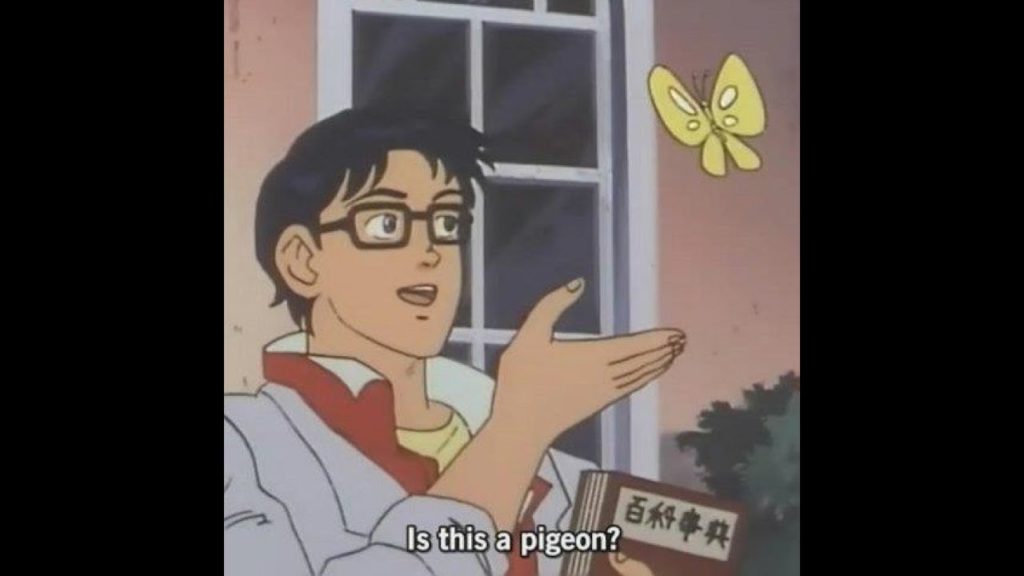RIO DE JANEIRO, BRAZIL – One of the most fascinating, and misunderstood, aspects of Brazil’s modern image is its mind-boggling meme culture. Brazilians are famous for their prolific, oblique, and self-deprecating use of memes in almost any online context. However, beyond its brash and wild aesthetic, Brazil’s meme culture is well worth exploring for clues about the country’s identity, politics, and much more.

Viktor Chagas, Professor at Universidade Federal Fluminense, is the Director and Coordinator of the University’s Museu de Memes, one of the only online spaces dedicated to preserving and understanding memes. Cleuci de Oliveira is a Brazilian journalist who has written for The New York Times, The Guardian and Foreign Policy.
They both spoke to The Rio Times about their fascination with Brazilian meme culture and how they think it can help to understand modern-day Brazil.
“The first thing to point out is that everyone is hyper-connected in Brazil,” comments de Oliveira. “I don’t know the exact figures but Brazilian adhesion for Facebook and WhatsApp is staggering. Brazilians do almost everything through WhatsApp.”
“Then there is the cliché that Brazilians are gregarious, and it’s true,” she adds. “Especially when something goes wrong in Brazil. And because things often don’t work out here, there’s this mentality to laugh about it and complain with humor. I think that powers our memes.”
De Oliveira recounts Brazil’s famous World Cup defeat to Germany. “I was in the stadium when that happened. And I remember as I was leaving, everyone’s phones just got flooded with memes.”
She speculates that this instant need to meme, when faced with adversity, is perhaps a coping mechanism connected to another cliché of Brazilian national identity, the “complexo de vira-lata” (“mongrel complex”, a term for Brazil’s self-deprecating attitude).
“With a lot of our memes there is this constant feeling that we are the best people to make fun of ourselves before anyone else can make fun of some absurd news story coming out of Brazil,” de Oliveira adds.
However, the infamous complexo de vira-lata isn’t the only thing driving Brazil’s meme culture, with de Oliveira pointing out that “there’s also the impromptu nature of memes. This preference for a spontaneous, creative reaction to a situation rather than something well-planned-out fits in with our culture,” she explains.

Viktor Chagas has been studying memes and meme culture for over eight years. “I would say that each culture has a unique meme culture. It somehow reflects our political culture as much as our social and historical heritage.”
He continues: “For instance, the United States position themselves as the champions of freedom of expression. Therefore, their meme culture is often a kind of defiance or provocation. Whereas in China, we have another kind of meme culture, more of a fight against censorship guided by a subversive tone in which visual puns try to deceive censors,” Chagas adds.
He goes on to explain how Brazil fits into this global meme atlas: “One remarkable aspect of Brazilian meme culture is the amount of self-deprecation. It acts as a political affirmation, but it’s also a trace of our cultural identity as an emerging country. So while Brazilians may use memes to make jokes about their country’s difficulties, such as the recent political crises, this doesn’t mean they aren’t aware of the gravity of such a situation – quite the opposite,” he argues.
“Political humor is our way of working out many of our deeper concerns, but not in an alienated or apathetic style,” Chagas says.
“The more people play with memes, the more we’ve got an increasingly politically aware population. Although still shallow, memes have been contributing to circulate information and to widen the public debate,” he adds.

One recent example where memes had a great impact on Brazilian society was during the 2018 presidential election, with Bolsonaro and his supporters making use of WhatsApp to spread memes and other politically-orientated messages.
De Oliveira argues that Bolsonaro’s web-savvy was an important factor in his victory. “It’s not so much that he harnessed the power of memes, but he and his team became so familiar with the way platforms such as WhatsApp work in a way that other politicians didn’t notice.”
She continues: “He became an internet native when everyone else was trying to catch up. People responded to that seeming authenticity. Other politicians realized too late that the internet was where they needed to be campaigning. So he started the race a lot earlier.”
So what now for Brazil’s meme culture with someone like Bolsonaro in power?
“I think what happens with these memes is that if the people online see that you can’t take it, they enjoy it a lot more,” de Oliveira states.
She continues: “Bolsonaro seems to be struggling with responsibility. So people smell blood a little bit. It could go the way of Danilo Gentili, this “comedian hero” of the anarchic internet. The reactionaries were on his side, but recently, people started to make fun of him, and he did not take it well.”
“That whole alt-right contingent turned on him like a tsunami. And he’s now the subject of the memes,” de Oliveira concludes.

